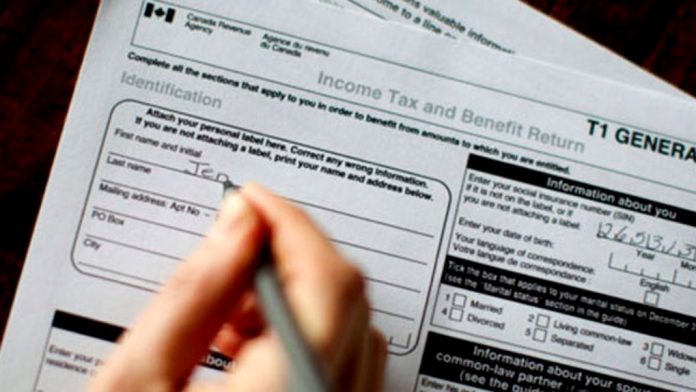Ahead of tax time, the Canada Revenue Agency (CRA) is reminding Canadians that all of the government’s COVID-19 benefits are taxable.
This includes the Canada Emergency Response Benefit (CERB), as well as benefits that had tax withheld at source, like the Canada Recovery Benefit (CRB).
With the 2021 tax season expected to be “incredibly complicated” and “unlike any other,” the federal agency has explained exactly what impact the financial support you received may have on your taxes.
Here’s everything you need to know:
Here’s a checklist to help you get ready for this tax filing season:
➡️Register for My Account
➡️Update your personal information
➡️Check out our Get Ready page ↪️ https://t.co/13zLSrQcGB #CdnTax pic.twitter.com/qxzjig0scw— Canada Revenue Agency (@CanRevAgency) January 4, 2021
How will COVID-19 benefits affect my taxes?
According to the CRA, all of the federal government’s COVID-19 benefits are taxable because they are effectively considered income.
This means the total amount you received must be included on your tax return.
Before tax time, the agency will get in touch via mail with a T4A form (or a T4E form if your benefit was administered by Service Canada).
Residents of Quebec should receive both a T4A and RL-1 slip.
This document will include all of the information and details you’ll need to include on your return.
You may end up owing tax when filing your return, depending on your individual circumstances and the kind of benefit you claimed.
Reminder for students! If you received #COVID19 benefits, make sure you enter the total amounts received on your tax return.
Find more tips and information here: https://t.co/q1yrrGjz24 #CdnTax pic.twitter.com/ZJ8m2xOSqF
— Canada Revenue Agency (@CanRevAgency) January 27, 2021
Which benefits are taxable?
The first COVID-19 benefits introduced by the federal government were the Canada Emergency Response Benefit (CERB) and the Canada Emergency Student Benefit (CESB).
Both programs did not withhold tax at source, which means many Canadians will be required to return a portion of the benefit to cover the associated tax.
The three new Recovery Benefits that were introduced to replace the CERB are also taxable.
This refers to the Canada Recovery Benefit (CRB), the Canada Recovery Sickness Benefit (CRSB) and the Canada Recovery Caregiving Benefit (CRCB.)
While a 10% tax was deducted upfront for these benefits, claimants may still be required to pay more depending on their income in 2020.
How can tax be owed if it was deducted upfront?
Whether or not more tax is owed will depend on an individual’s personal circumstances, including income in 2020 and the specific benefit claimed.
Some people may actually have to pay less tax if their income was below a certain threshold during the same period.
Tax experts and banks previously urged anyone claiming COVID-19 benefits to start preparing for April as soon as possible, as you could end up owing money without even realizing it.
Fortunately, free tax help is available to eligible Canadians to help them work out exactly what they may or may not owe.
The CRA also acknowledges that repayments could present “significant financial hardship” for some people. As a result, payment arrangement plans are available for those who need support.
































